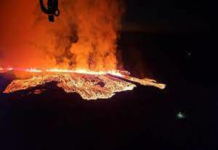In the wake of the U.S. withdrawal from Afghanistan, the Islamic State of Khorasan Province (ISKP) has strategically shifted its propaganda focus, directing criticism and mockery towards the United States and its political and military leaders. This development comes as ISKP expands its global ambitions, posing potential security threats to the U.S. and its Western allies.
Dr. Uran Botobekov, a leading expert on the Central Asian Salafi-Jihadi Movement, recently analyzed the propaganda tactics of the Islamic State of Khorasan Pakistan (ISKP) in an article on Homeland Security Today’s official website. He revealed that, alongside brutal attacks on diplomatic missions and foreign nationals, ISKP has escalated its ideological and propaganda warfare.
ISKP, the official affiliate of the Islamic State terror group operating in Central and South Asia, initially engaged in superficial religious vilification of Western “crusaders.” However, recent content analysis of ISKP propaganda materials reveals a transition to targeted criticism and mockery of President Biden and the U.S. military command.
The group’s ideological shift has been accompanied by a strengthening insurgency and a growing international agenda, with consequences for U.S. and Western security interests. Since the coordinated suicide bomb attack on Kabul airport in August 2021, which claimed at least 100 lives, including 13 U.S. troops, ISKP has demonstrated a newfound global ambition, targeting world and regional powers.
Before the U.S. withdrawal, ISKP primarily focused on a propaganda war against the Taliban, its strategic rival and ardent enemy. However, with expanded ideological, logistical, and operational capacities, the group now actively engages in an ideological war against external enemies, including the United States, Russia, Pakistan, China, India, Iran, Turkey, Uzbekistan, and Tajikistan.
The reduced counterterrorism pressure following the U.S. withdrawal has allowed ISKP to pursue a calculated and ambitious international strategy. Over the past year, the group has executed high-profile attacks, such as a suicide bombing on the Russian Embassy in Kabul and rocket attacks on Uzbekistan and Tajikistan. ISKP’s strategists aim to increase the group’s appeal in the global jihadi world and undermine the Taliban’s ability to ensure stability in Afghanistan.
To support its global ambitions, ISKP has launched several multilingual propaganda outlets under the Al-Azaim Foundation for Media Production. These outlets include magazines, radio broadcasts, and online platforms in languages such as English, Pashto, Dari, Persian, Urdu, Uzbek, Tajik, Hindi, Malayalam, Russian, Arabic, and occasionally Uyghur.
A comprehensive content analysis of Al-Azaim Foundation’s multilingual propaganda narratives highlights the U.S. as ISKP’s main enemy, referred to as the “Chief Shaitan” (evil spirit in Islamic belief). The propaganda has evolved from theological and ideological accusations against the “American Crusaders” to targeted criticism of U.S. military and political events.
In a recent issue of the Voice of Khurasan magazine, ISKP mocks the U.S. fear of a “Chinese weather balloon” and questions the Biden administration’s reaction to potential operations by “unidentified soldiers of Allah” within the U.S. The article concludes by suggesting the U.S. is “afraid of its own shadow” and hints at the possibility of another 9/11-style attack.
Recent propaganda activities also include a video message posted on a pro-ISKP Uzbek Telegram channel ridiculing President Biden’s assurances about the safety of the U.S. banking system after the collapse of Silicon Valley Bank. Uzbek jihadists mockingly dismiss Biden’s promises as worthless.
The consequences of ISKP’s evolving propaganda tactics raise concerns for U.S. and Central Asian security interests. The group’s ability to adapt its rhetoric to changing security situations in Central Asia and beyond underscores the importance of addressing its global ambitions.
As ISKP continues its ideological and propaganda warfare, there are growing fears that the Taliban may struggle to contain the rising threat. The article suggests that post-Soviet Central Asian countries must find acceptable forms of cooperation with the U.S. for intelligence sharing and coordinated counterterrorism measures to curb the global ambitions of the ISKP or risk facing the terrorist group on their own territory in the near future.







